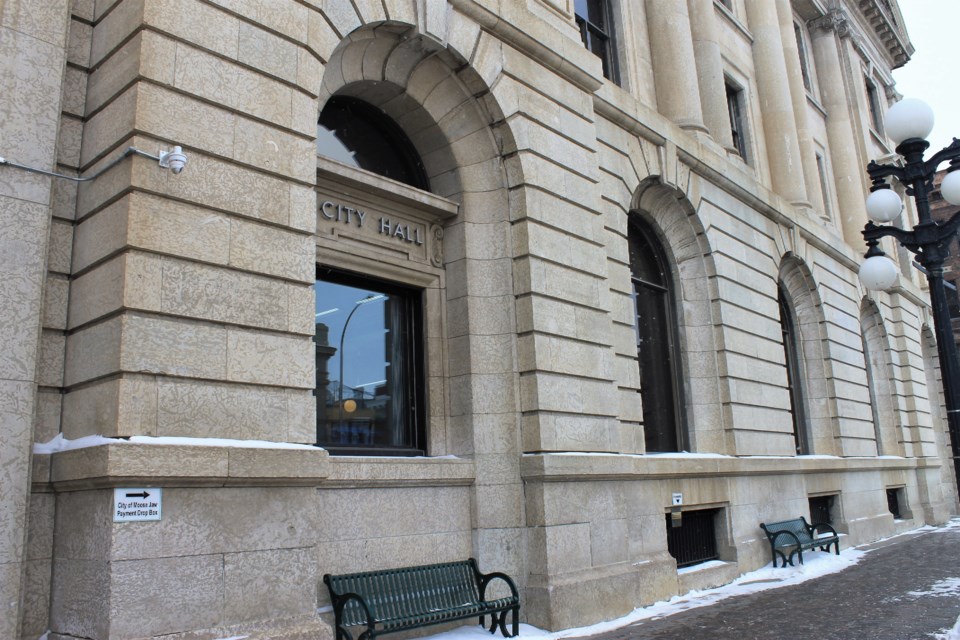A recent national survey shows government employees throughout Canada have not experienced a pay cut in recent memory, a phenomenon that extends to staff with the City of Moose Jaw.
SecondStreet.org, a national company that monitors how government policies affect Canadians, noticed that many big-name businesses cut employee pay during the height of the pandemic. The government sector seemed noticeably absent from such cuts.
This led the company to ask the federal government, all 10 provincial governments and 13 major cities when they last cut employee pay.
“Results from our survey showed government employees in Canada are more likely to be hit by lightning than suffer a pay cut,” Colin Craig, president of SecondStreet.org, said in a recent opinion column for The Financial Post.
The federal government said there was no data or information to indicate there had ever been a negotiated pay reduction for federal employees, Craig continued. Yet, the federal government negotiated a pay raise for employees during the height of the pandemic.
“It must be amazing to work for an organization that only ever raises pay — and will even add to a mountain of debt to do so,” he added.
Craig says that government pay reductions could help prevent tax increases for everyday taxpayers.
The Moose Jaw Express contacted city hall to find out whether municipal employees had ever experienced a pay reduction.
In an email, communications manager Craig Hemingway explained municipal wages are negotiated through collective bargaining. Out-of-scope staff have received the same wage increases as CUPE Local 9 for decades, while probationary employees can revert to their former position, which typically results in a reduced wage.
“There are instances where this happens with both in-scope and out-of-scope staff,” Hemingway wrote. “Generally speaking, any overall wage reductions have come through reduction of staff.”
There have been instances where the municipality has reduced staff when either city administration or city council deemed it appropriate, he added. For example, during the pandemic, city hall laid off 37 employees, did not recall seasonal staff and redeployed employees to non-traditional roles.
The research that SecondStreet.org conducted showed no province and no major city had reduced the pay of government employees in recent memory.
“Overall, the data are clear. When times get tough, politicians of all political stripes almost always insulate government employees while the rest of us face the elements,” said Craig. “It’s true that governments have negotiated wage freezes on occasion, meaning real wages have temporarily not kept up with inflation. But out in the real world, the rest of us have faced that sort of thing, but also actual cuts in the numbers that show up on our cheques or in our pay packets.”
Change is possible, however, continued Craig. In Alberta in 1994, a negotiated five-per-cent pay reduction occurred when the government told unions they would take the pay reduction or face layoffs. The government did not back and the unions eventually accepted the cut.
Furthermore, government employee unions and politicians have claimed pay cuts can’t occur as unions have contracts in place. But countless workers outside government have also had contracts and agreed to reopen them to negotiate pay reductions to save their jobs, Craig pointed out. If government employee unions won’t be reasonable about the unique challenge Canada faces and agree to reopen their contracts, layoffs would be a drastic option to save money — but would work.
“Governments across Canada are awash in red ink right now, a situation that is simply not sustainable. Compensation costs typically represent half a government’s budget — more in the case of school boards — so it is hard to see how politicians will tackle their budget shortfalls without wage and salary cuts,” Craig added.
“For government employees, pay reductions would help save jobs. For everyday taxpayers, government pay reductions could help prevent tax increases. If we don’t see concessions from government employee unions, maybe it’s time for the rest of society to go on strike.”
The original column was first published by The Financial Post on Sept. 10. Sections of the column were reprinted with permission from the author.




